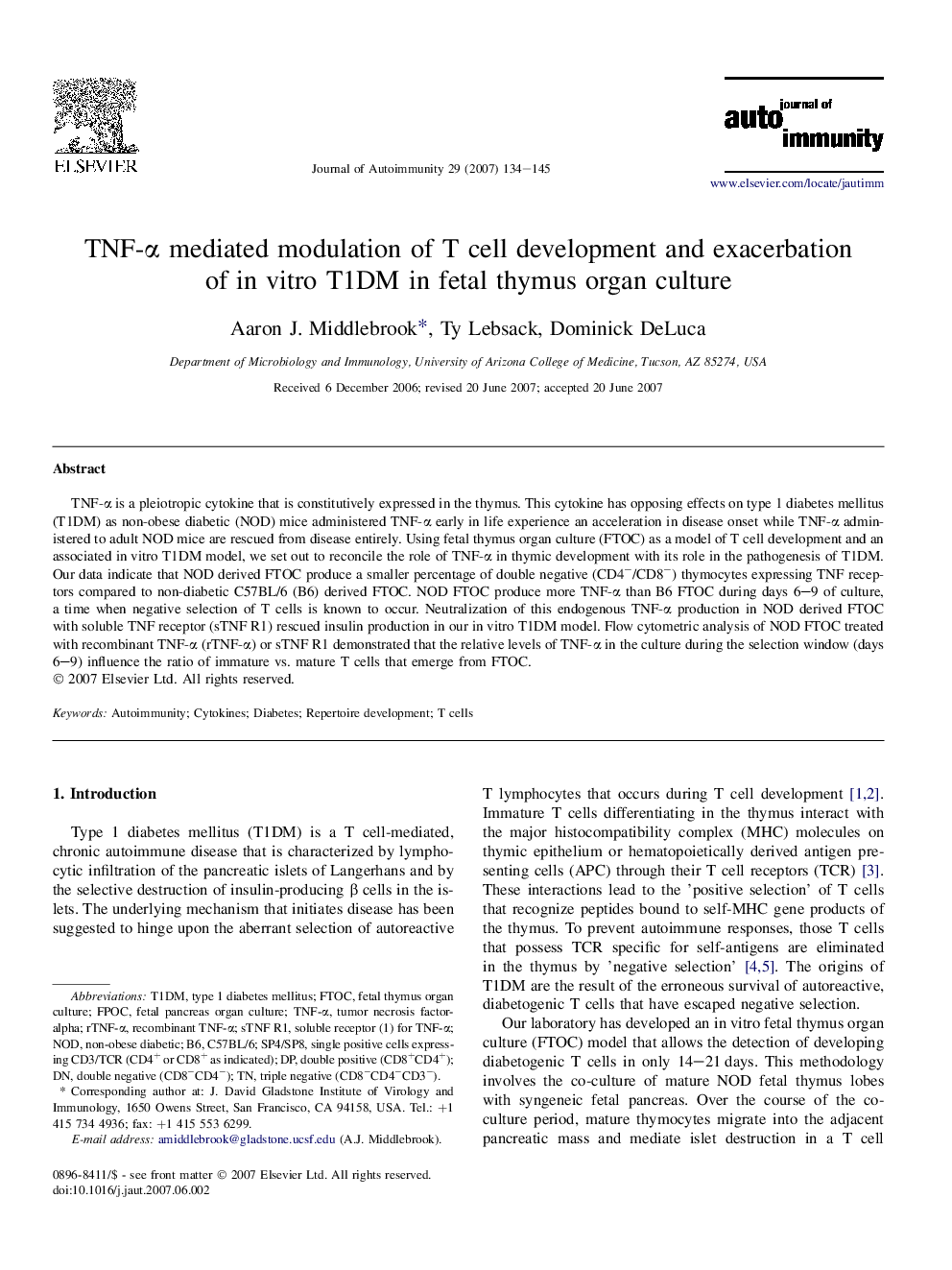| Article ID | Journal | Published Year | Pages | File Type |
|---|---|---|---|---|
| 3368506 | Journal of Autoimmunity | 2007 | 12 Pages |
TNF-α is a pleiotropic cytokine that is constitutively expressed in the thymus. This cytokine has opposing effects on type 1 diabetes mellitus (T1DM) as non-obese diabetic (NOD) mice administered TNF-α early in life experience an acceleration in disease onset while TNF-α administered to adult NOD mice are rescued from disease entirely. Using fetal thymus organ culture (FTOC) as a model of T cell development and an associated in vitro T1DM model, we set out to reconcile the role of TNF-α in thymic development with its role in the pathogenesis of T1DM. Our data indicate that NOD derived FTOC produce a smaller percentage of double negative (CD4−/CD8−) thymocytes expressing TNF receptors compared to non-diabetic C57BL/6 (B6) derived FTOC. NOD FTOC produce more TNF-α than B6 FTOC during days 6–9 of culture, a time when negative selection of T cells is known to occur. Neutralization of this endogenous TNF-α production in NOD derived FTOC with soluble TNF receptor (sTNF R1) rescued insulin production in our in vitro T1DM model. Flow cytometric analysis of NOD FTOC treated with recombinant TNF-α (rTNF-α) or sTNF R1 demonstrated that the relative levels of TNF-α in the culture during the selection window (days 6–9) influence the ratio of immature vs. mature T cells that emerge from FTOC.
